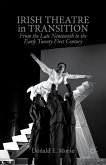Character's Theater Genre and Identity on the Eighteenth-Century English Stage Lisa A. Freeman "A well-researched book, which draws on some interesting and lesser-known plays, such as those by neglected female playwrights."--Times Literary Supplement "Lisa Freeman's excellent cultural analysis . . . demonstrates that character is a contested site in England's attempt to negotiate a changing sociology of class, gender, and nation even as it retained fundamental forms of patriarchy. . . . This is perhaps the most important new book on eighteenth-century theater."--Albion If the whole world acted the player, how did the player act the world? In Character's Theater, Lisa A. Freeman uses this question to test recent critical discussion of eighteenth-century literature and culture. Much current work, she observes, focuses on the concept of theatricality as both the governing metaphor of social life and a primary filter of psychic perception. Hume's "theater of the mind," Adam Smith's "impartial spectator," and Diderot's "tableaux" are all invoked by theorists to describe a process whereby the private individual comes to internalize theatrical logic and apprehend the self as other. To them theatricality is a critical mechanism of modern subjectivity but one that needs to be concealed if the subject's stability is to be maintained. Finding that much of this discussion about the "Age of the Spectator" has been conducted without reference to the play texts or actual theatrical practice, Freeman turns to drama and discovers a dynamic model of identity based on eighteenth-century conceptualizations of character. In contrast to the novel, which cultivated psychological tensions between private interiority and public show, dramatic characters in the eighteenth century experienced no private thoughts. The theater of the eighteenth century was not a theater of absorption but rather a theater of interaction, where what was monitored was not the depth of character, as in the novel, but the arc of a genre over the course of a series of discontinuous acts. In a genre-by-genre analysis of plays about plays, tragedy, comedies of manners, humours, and intrigue, and sentimental comedy, Freeman offers an interpretive account of eighteenth-century drama and its cultural work and demonstrates that by deploying an alternative model of identity, theater marked a site of resistance to the rise of the subject and to the ideological conformity enforced through that identity formation. Lisa A. Freeman teaches English at University of Illinois at Chicago. 2001 312 pages 6 1/8 x 9 1/4 8 illus. ISBN 978-0-8122-3639-2 Cloth $59.95s £39.00 World Rights Literature Short copy: "Lisa Freeman's excellent cultural analysis . . . demonstrates that character is a contested site in England's attempt to negotiate a changing sociology of class, gender, and nation even as it retained fundamental forms of patriarchy."--Albion
Hinweis: Dieser Artikel kann nur an eine deutsche Lieferadresse ausgeliefert werden.
Hinweis: Dieser Artikel kann nur an eine deutsche Lieferadresse ausgeliefert werden.








